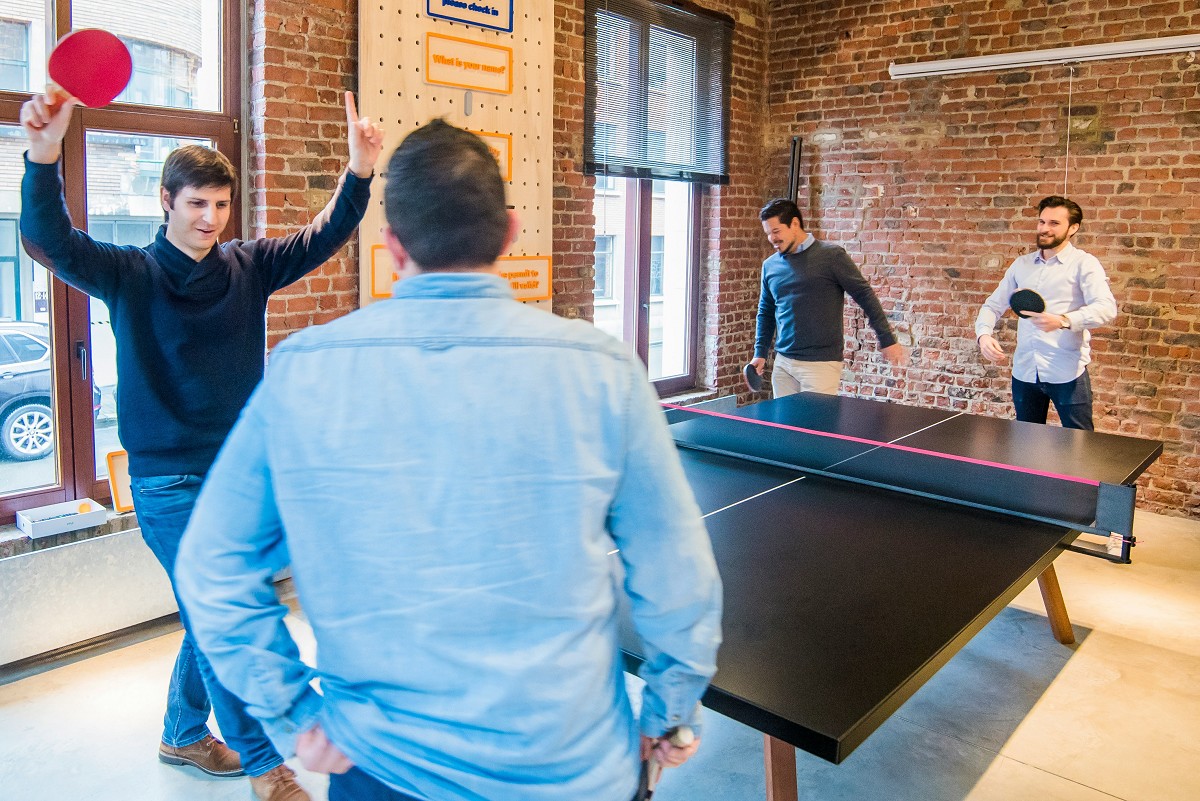
Before we dive in, let's answer this question: Why is adult play important? First, adult play is just a different way of saying engagement. Engagement is, of course, a hot topic right now.
Not only are research polls uncovering just how disengaged people feel, but some are tracking the results of how this lack of engagement is showing up in the low levels of well-being many are feeling. This is playing out in other ways, too. People are filing large numbers of conflicts and complaints. There is a significant increase in the number of sick days individuals are taking. And many are leaving their jobs.
Play is driven by intrinsic motivators, the things you enjoy so much you would do them for free. You work and save to be able to do these things. Extrinsic motivators, on the other hand, are the things we do because someone is paying us or giving us something to do it. They are extrinsically motivating us with a paycheck.
But not all play is equal.
For example: If you hate charades, playing a game that requires role-play or acting is not something you would do for free. It may even be something for which you would require a bonus paycheck. Likewise, you might hate contests, but your co-worker continually keeps score and cannot understand why you do not want to “join in the fun.” But it is their idea of fun, not yours.
At Strategic Play, we are all in when it comes to the idea of play. However, we also recognize that one person's dream can be another's nightmare.
We have found there are many different types of play and different ways that adults play at work. And people have different intrinsic motivators for play. The issue is that most people cannot explain their motivators. This occurs for a number of reasons.
People might:
-
Think everyone has the same set of motivators.
-
Have forgotten what they really love doing.
-
Have buried and lost connections or clues.
-
Think the things they enjoy have nothing to do with work.
-
Worry others will judge them for their preferences.
-
Be aware of how society discounts play and shames the players.
-
Feel disconnected, even cynical, and reject the idea of finding any joy in life, let alone at work.
From the time we begin to talk, others shape our views on play.
At a very early age, we become keenly aware of how we want to and do not want to play. We also know what the adults in our lives want us to do and what their expectations are around how we should play.

These attitudes we learned so early on, along with societal norms, shaped how we think about play and the activities we choose to do. As we grew, these ideas influenced our decisions around how we spent our free time and who we spent time with.
Many children are heavily programed by adults, starting around 7:00 a.m. until around 9:00 p.m., going from school to after-school activities. How can they possibly learn to find meaning when they are doing the things someone else is telling them are important? As humans, if we leave our unique play track early on we may miss the chance to really step into our authentic selves.
It is little wonder that as adults, we can be confused and even at a loss when we have a day off and time to do anything we want. It is easy to get lost in distractions on the Internet in an endless scroll or to go shopping for things we do not need. This can lead to guilt about the time or money we have wasted. And then we can spend too much time wondering: What is the meaning or point of it all?
At Strategic Play, we are on a mission to bring authentic play back into the lives of adults. We are attempting to reengineer adults to think like they did when they were children. We see play as the gateway to the flow zone as well as to mental well-being and happiness. This is why we invented the Playsonality© Assessment and Workshop. This program uncovers the core drivers for each person and identifies their unique playstyles.
Reading the results is like opening a time capsule on how we authentically played as children and sometimes even the hopes and dreams of our youth. Imagine if you were re-equipped with a deeper understanding of your unique drive for play. Now in adult life, this knowledge could unlock your superpower and hold the key to engagement and uncover your natural brilliance at work.
What if this Playsonality© toolbox could:
-
Be the key to unlocking engagement?
-
Help people reconnect and set important boundaries?
-
Provide a framework or compass for work and life?
-
Hold the key to purpose, meaning, and happiness?
Are you curious? Why don't you come out and play with us? You can crack your own DNA play code!
Join us at the following conferences where we will be presenting and / or sponsoring in 2024 and find out more about how play shapes your mind and reinvigorates your soul.
June 23 – 27: CPSI -Niagara Falls, New York, USA
August 5 – 9: Mind Camp -Port Elgin, Ontario, Canada
August 12 – 14: Serious Play Conference -Toronto, Ontario, Canada
August 15: Ted X - Washington, DC, USA
September 23 – 25: EPIC International Summit -Santa Barbra, California, USA
November 14-16: Association of Experimental Education - (Rockies) Estes Park, Colorado, USA
See you there!
Email us anytime for more information: hello@strategicplay.com